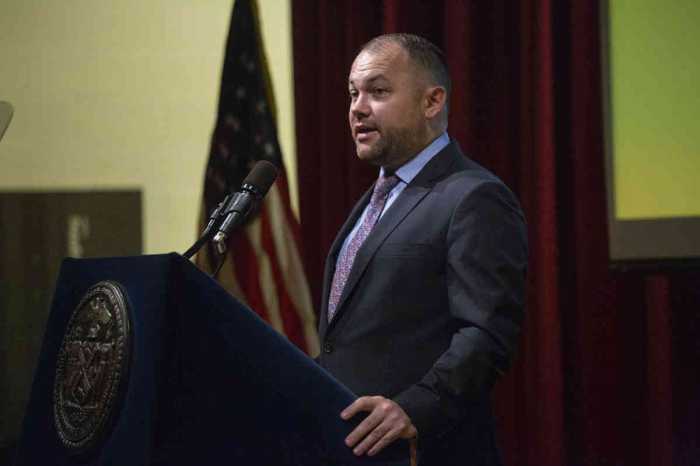The raid on rentboy.com by the US Department of Homeland Security is no fluke. It follows the April passage of the Justice for Victims of Trafficking Act by lopsided majorities in Washington.
Major enforcement responsibility was assigned to the agency created to protect us from terrorism and control immigrants. Congress declared the law would stop “persons who commit crimes relating to child human trafficking,” but along the way it increased federal authority over all acts of prostitution regardless of their connection to children.
The law is modeled after the failed war on drugs. Human trafficking is caused, Congress declared, by “the demand for commercial sex,” and it grandly insisted that “elimination” of trafficking “requires the elimination of that demand.”
The Long View
Everybody favors prosecution of child sex traffickers but “elimination” of prostitution is quite another matter. The effort to control the harms of drug use by eliminating demand for drugs has been a failure, yet Congress is applying the same demand-centered approach to prostitution.
The Homeland Security raid on rentboy fulfills this dubious congressional mandate. Rentboy has never credibly made any secret of its activities; it simply acted as a broker conveniently bringing buyers and sellers together. In other words, had city or state authorities wanted to stop this service, the evidence was always available on the website. Quotes from the website designed to provoke disgust on the part of the broader public constitute the bulk of the accusations in the federal warrant.
But it is clear that these are adults pursuing their own choices, and the federal government is trying to turn the public against these choices. It is hard to envision adverse social impacts from rentboy’s existence. Men were contacted on their cell phones, their services hired, and the deeds took place behind closed doors. The men took up this work voluntarily and they paid rentboy to advertise their services. Clearly they aren’t victims of trafficking, but are instead self-employed. This is high-end prostitution with virtually everyone asking $200 an hour or more. The justification for the government’s aggressive action is a new moral crusade: all prostitution is bad and must be wiped out. There is another word for such an objective: extremism.
In fact, services like rentboy exist in every metropolitan city in the world. It had not provoked any concern from city or state law enforcement. And the question must be asked if federal intervention is wise or whether the locals previously had the right approach in ignoring rentboy as well as similar agencies brokering the services of women. Congress has given the federal government the power to trump the discretionary judgments of local officials.
Surely one reason for the prevailing local tolerance is that the personal choices offered by rentboy, familiar to gay men, are understood by police to be one niche in urban social life. It should be a concern to every member of the LGBT community that personal preferences for foreskin, rimming, watersports, or domination should be turned by the federal government into slut-shaming and the rationale for criminal charges.
In fact, the language and tone of the warrant come perilously close to characterizing participants in the rentboy enterprise as “sex offenders” –– a category in law that has ballooned into a massive catchall with dangerous implications. In Indiana, a 19-year old man met a 14-year old girl on the Internet. When criminal charges were brought against the man, the girl admitted she lied about her age, saying she was 17 –– yet he will pay for that deception for 25 years. “That seems to be part of our culture now,” Judge Dennis Wiley said in rendering his verdict. “Meet, have sex, sayonara. Totally inappropriate behavior. There is no excuse for this whatsoever.” Wiley sentenced Zach Anderson to 90 days in jail and five years probation, but also 25 years on the sex offender registry. “It’s like I’m an outcast from society with all these things that I have put on me,” the young man told reporters.
In her book “Caught: The Prison State and the Lockdown of American Politics,” Marie Gottschalk writes about how the sex offender category has led to tougher sentences across the board, draconian registration and community notification laws, and, in some cases, indefinite civil commitment of sex offenders who have completed their criminal
sentence.
It is useful to remember that “meet, have sex, sayonara” is precisely the service provided by rentboy, and the federal complaint indicates that the government’s response is to create disgust, define the behavior as deviant, and then press criminal charges. Rentboy CEO Jeffrey Hurant’s efforts to insist that sex work wasn’t involved in its business are comical, but his attorney is surely right to raise questions about government overreach, especially since his client faces five years in prison and fines of up to $250,000.
This federal crime-fighting initiative is just one more out of the mass incarceration model now so discredited. If meeting, having sex, and saying goodbye is now likely to create criminal liability, we’re all in trouble. Just last week, five leading LGBT advocacy groups –– Lambda Legal, Gay & Lesbian Advocates & Defenders, the National Center for Lesbian Rights, the National Center for Transgender Equality, and the Transgender Law Center –– joined Amnesty International in its call for decriminalization of sex work. So far, only the Transgender Law Center has yet responded to the roiling language out of the federal prosecutor in taking down rentboy and condemned this law enforcement action.




































